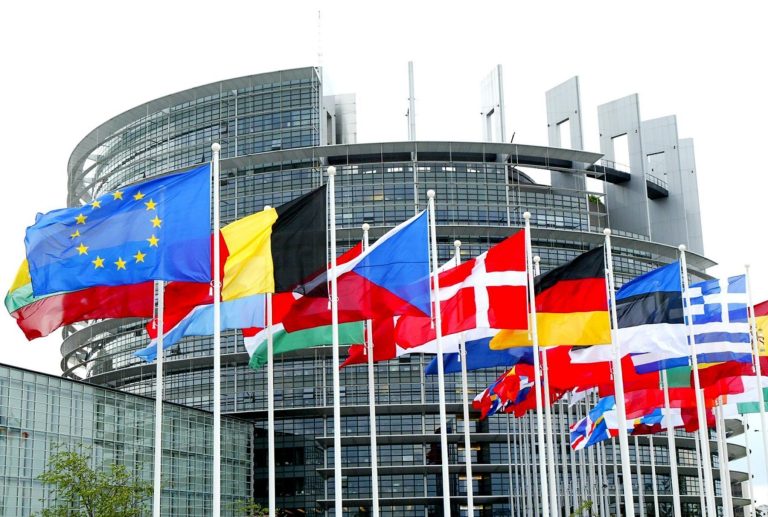12 de octubre 2021

Children of Exile: The Births “Sowing Hope” in the Camp of Nicaraguan Farmers

PUBLICIDAD 1M
PUBLICIDAD 4D
PUBLICIDAD 5D
The EU maintians that the Ortega-Murillo government “has eliminated the possibility of any serious electoral competition” in the upcoming vote.

The European Union (EU) extended this Monday, October 11, another year the sanctions imposed on personalities and companies linked to the Daniel Ortega regime, considering them linked to the deterioration of the political and social situation in Nicaragua.
The EU Council -an institution in which the governments of the 27 member countries are represented-, declared in a statement that it has extended the legal framework on which these sanctions are based until October 15, 2022.
The sanctions were first imposed by the EU in October 2019 against persons and entities “responsible for human rights violations or abuses, or for the repression of civil society and democratic opposition in Nicaragua,” as well as against those who carry out “policies or activities that undermine democracy and the rule of law.”
Since this legal framework was created, the EU has sanctioned a total of 14 senior regime officials, including the vice president and first lady, Rosario Murillo; one of the sons of the presidential couple, Juan Carlos Ortega Murillo; the president of the National Assembly, Gustavo Porras Cortés; the president of the Supreme Court of Justice (CSJ), Alba Luz Ramos Vanegas; the presidential advisor for economic affairs, Bayardo Arce Castano; and Ana Julia Guido Ochoa, the attorney general.
Also included are several police chiefs: the director of the National Police, Francisco Díaz, as well as Luis Alberto Perez Olivas, Justo Pastor Urbina, Ramon Avellan, Fidel Domínguez Alvarez and Juan Antonio Valle Valle. The list of those sanctioned is completed by the close collaborator of the presidential couple, Nestor Moncada Lau, and the former Minister of Health, Sonia Castro.
The restrictive measures consist of the prohibition of travel to the EU territory and the freezing of assets.
Most of the fourteen sanctioned by the EU already appear on other lists of those sanctioned by the governments of Canada, United Kingdon, Switzerland and the United States, which point them out of acts of corruption and violations of the human rights of Nicaraguans.
The EU has reiterated that the return to an inclusive dialogue and democracy in Nicaragua “is the only way out of the political, economic and social crisis” that the Central American country is experiencing.
For this reason, it has requested that Nicaraguan authorities put an end to the repression of political opponents, independent media, civil society, and human rights defenders, and that it fully guarantees the respect of fundamental freedoms and civil and political rights in the country.
Instead, it stressed that the Nicaraguan Government has “stepped up the repression, outlawing opposition parties and civil society organizations as well as imprisoning political opponents and members of academia, journalists and other citizens without regard for due process.”
The EU notes that such actions by the Ortega-Murillo government “has eliminated the possibility of any serious electoral competition” in the general elections on November 7, “depriving the citizens of Nicaragua of their sovereign right to freely elect their representatives.”
This article was originally published in Spanish in Confidencial and translated by Havana Times
Archivado como:
PUBLICIDAD 3M
Confidencial es un diario digital nicaragüense, de formato multimedia, fundado por Carlos F. Chamorro en junio de 1996. Inició como un semanario impreso y hoy es un medio de referencia regional con información, análisis, entrevistas, perfiles, reportajes e investigaciones sobre Nicaragua, informando desde el exilio por la persecución política de la dictadura de Daniel Ortega y Rosario Murillo.
PUBLICIDAD 3D